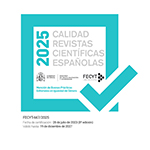1. Los/as autores/as deben garantizar que todos los estudios realizados relativos a personas o poblaciones en situación de vulnerabilidad (vulnerabilidad cognitiva, vulnerabilidad a la autoridad, vulnerabilidad diferencial, vulnerabilidad física, vulnerabilidad social, vulnerabilidad cultural, etc.) se ajustan a las leyes y requisitos nacionales, locales e institucionales, y deberán confirmar que la aprobación se ha buscado y obtenido en caso necesario. Los/as autores/as deben obtener el permiso expreso de los sujetos y respetar su privacidad.
2. Al llevar a cabo una investigación con poblaciones vulnerables (por ejemplo, con jóvenes, con poblaciones que han migrado recientemente, con enfermos mentales), los/as autores/as deben tener especial cuidado para asegurar que se comprenda la naturaleza voluntaria de la participación en la investigación y que el consentimiento obtenido no sea coaccionado.
3. Si el consentimiento informado no ha sido posible un comité de investigación y ética, adecuadamente constituido, debe decidir si el estudio se aprueba desde el punto de vista ético conforme al Ethical Research Involving Children (ManuaL ERIC)
4. En el supuesto de investigaciones con niños/as y/o adolescentes el/la autor/a necesitará el consentimiento informado de los padres, tutores/as o familiares a cargo de la persona menor de edad.









